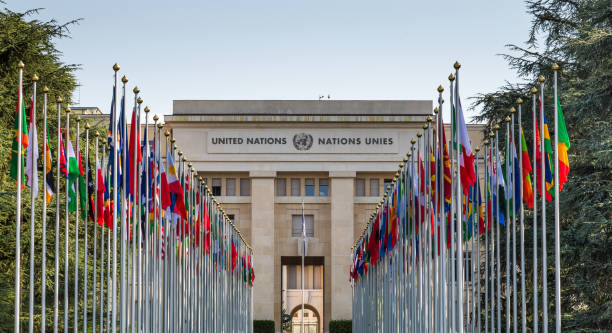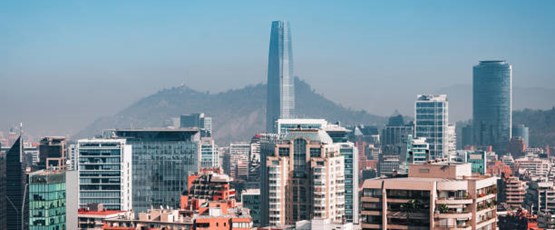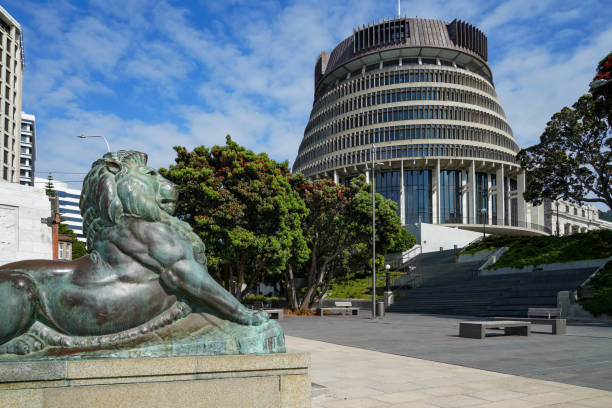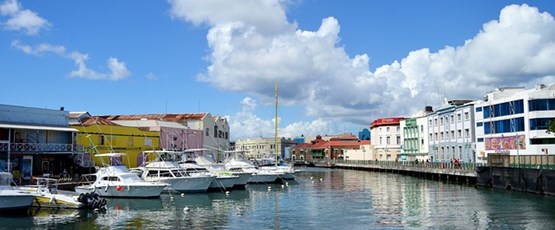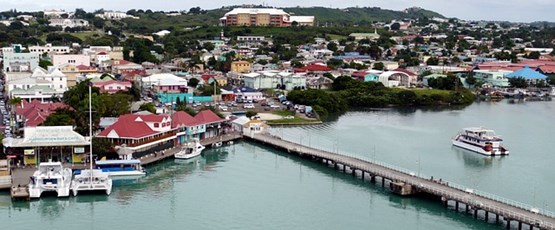Jurisdictions
Regions
Industry Sectors
Transparency vs Privacy
Transparency vs Privacy
Delve into the intricate balance between transparency and privacy in the evolving landscape of international finance with our feature. We explore the pitfalls of imposing intrusive surveillance on cryptocurrencies, the shortcomings of anti-money laundering laws, and the UK's experience with beneficial ownership registers.
Uncover the shifting focus of global initiatives like FATF and the nuanced implications of Public Registers of Beneficial Ownership, and stay informed on key legislative reforms shaping the future of economic transparency.
Around The Jurisdictions
Captive Insurance
Captive Insurance
As markets evolve and regulations shift, companies seek robust strategies to mitigate risks effectively. Against this backdrop, our feature uncovers the dynamic landscape of captive insurance, exploring its trajectory in relation to key jurisdictions and regulatory frameworks. We unlock its transformative potential for businesses worldwide, looking specifically at Guernsey, Bermuda, the Cayman Islands and Hong Kong.
UK Tax For Non-Doms
Focus on VASPs
Virtual Assets
In recent years, the global financial landscape has witnessed a paradigm shift with the advent of virtual assets and the emergence of virtual asset service providers (VASPs). These digital currencies and the platforms facilitating their exchange have ushered in a new era of financial innovation and decentralized finance. However, alongside their disruptive potential comes a pressing need for regulatory clarity and oversight.
In this feature, we embark on a comprehensive journey across six jurisdictions—Cayman, Hong Kong, Ireland, Jersey, Singapore, BVI and Luxembourg—looking at the regulations governing virtual assets and VASPs. Through a series of insightful articles, we delve into the evolving regulatory frameworks, compliance challenges, and industry developments shaping the future of this burgeoning sector. Each jurisdiction offers a unique perspective on navigating the complexities of virtual asset regulation. With each working to establish themselves as powerhouses in fintech innovation, our exploration promises a diverse array of insights into the regulatory dynamics at play.
ESG Investment and Climate Finance
Sustainable Finance
As the global call for sustainable practices resonates louder than ever, our feature illuminates the…
AML & Financial Crime
AML & Financial Crime
In the ever-evolving landscape of global finance, the battle against financial crime and money laundering remains a critical issue. Explore insights from intergovernmental organisations such as the FATF on the regulations and technological advancements shaping the global response to financial crime. Elsewhere, our authors comment on the role of cryptocurrencies in terrorist financing, trends in anti-money laundering compliance, and misunderstandings regarding the role of small IFCs in global tax evasion.
Featuring articles from T Raja Kumar (FATF), Dan Wise and Harley Thomas (Martin Kenney & Co), Zarea Kamil and Rebecca Munro (Pragmatix Advisory) and Kateryna Boguslavska (Basel AML Index), this feature delves into AML and financial crime within the offshore finance industry.
Transparency vs Privacy
Transparency vs Privacy
The ongoing discourse between transparency and privacy in the offshore finance industry reflects opinion on the responsibilities of financial actors in the pursuit of a secure and accountable financial system. Our feature scrutinizes narratives surrounding beneficial ownership and exchange of information. We begin with Paul Beckett’s critique of the strategies employed to conceal beneficial ownership, followed by Paolo Panico’s examination of the varied response across EU member states to the ECJ’s decision to deem unrestricted public access to UBO registers unlawful.
Geoff Cook looks at recent EU judgments underscoring the delicate balance between financial transparency and individual data rights, emphasizing the need for international cooperation and standardized approaches to data sharing and protection. Finally, Zayda Manatta discusses the OECD’s role in international tax cooperation, discussing regulatory frameworks, international initiatives and evolving standards of transparency and privacy.
The Big Debate
The Big Debate
How Involved Should The UN Be In Global Tax Policy And Regulation?
Following the publication of the Global Tax Report by the UN in August 2023, there has been a tussle between the OECD and UN for control over international tax affairs. We posed a question to key voices in global tax regulation: what should the UN's role in international taxation be?
The Big Debate
How Involved Should The UN Be In Global Tax Policy And Regulation?
States have an extraterritorial obligation to ensure that fiscal law and policy respect and protect…
The Global Financial Centres Index
IFCs Improve Their Position In The Global Financial Centres Index
In 2005, the Z/Yen Group undertook research for the City of London on the competitiveness of financi…
US Market Feature
Trusts and Foundations
New Zealand
New Zealand’s High Wealth Individuals Research Project
This Project was launched in 2021 by the Labour Government’s Revenue Minister, David Parker, utilisi…
BEPS 2.0: Where Are We Now?
BEPS Two-Pillar Solution: Where Are We Now?

Dr Mona Baraké
EU Tax Observatory/ Paris School of Economics
In October 2021, a significant number of member jurisdictions of the OECD/G20 Inclusive Framework on Base Erosion and Profit Shifting (BEPS) came together to reform global tax rules through a Two-Pillar solution. These reforms, often called BEPS 2.0, seek to tackle the tax challenges arising from the digitalisation of the economy, ensuring that multinational enterprises (MNEs) pay a fair share of taxes where they operate. The first Pillar gives taxing rights over MNEs’ profits to countries where the final users are through Amount A, while Pillar Two introduces a global minimum tax of 15% on MNEs’ profits.
Since initiating the Two-Pillar solution discussions, Pillar Two appears to be progressing toward coming into effect soon, with the EU and about sixteen countries planning to introduce the minimum tax as soon as 2024 and 2025. In contrast, the implementation of Pillar One seems to be paused.
Pillar Two: Imminent Implementation
Starting in January 2024, the EU and ten countries (Switzerland, United Kingdom, New Zealand, Liechtenstein, Japan, Canada, Australia, South Korea, Vietnam, Norway) are expected to adopt the 15 per cent minimum tax on MNEs with revenues of at least 750 million euros. By January 2025, additional countries such as Singapore, Malaysia, Thailand, Jersey, Guernsey, and Hong Kong, are anticipated to follow. Within the EU, member states have the option to postpone the introduction of the minimum tax for six years if they have no more than twelve MNEs in scope of the Pillar 2 Directive.
IIR or QDMTT?
Under Pillar Two, countries have the choice to implement either the I…
BEPS 2.0: Where Are We Now?
The International Tax Reform Journey: Past — Present — Future

Manal Corwin
OECD Centre for Tax Policy and Administration
The international tax reform journey is the story of how and why countries collaborate on tax matters. The right to tax is fundamental to national sovereignty and is jealously guarded by national governments. Countries choose to collaborate on international tax rules and standards when collective action is necessary to secure or facilitate domestic policy objectives; or alternately, when the absence of collective action or coordination frustrates domestic objectives.
Increasing globalisation and digitalisation have multiplied opportunities and avenues for cross-border activities, putting pressure on the international tax architecture and creating new demands for collaboration. Further, increasing awareness of development financing needs has led to a collective interest among jurisdictions in coordinating to enhance the capacity of developing economies to mobilise resources to support growth and development.
Past
The international tax reform journey has already come a long way. Governments have collaborated on international taxation for over 100 years, developing an agreed set of international tax rules that helped promote stability and growth by removing barriers to cross-border investment, while protecting domestic tax bases. However, during the global financial crisis, it became clear that this international tax architecture, developed in the “brick and mortar” economy a century prior, was no longer suited to the increasingly digitalised and gl…
International Tax
Upcoming Power Battle Between UN And OECD: Is CARF The Last Landmark Of An Ending Era?
The advent of digital assets has revolutionised the financial world, offering new opportunities, but…
Comment
Hopeless, Clueless, and Almost Disingenuous: The EU Tax Observatory Global Tax Evasion Report 2024
To state the conclusion at the outset: This latest Report from the EU propaganda factory is a dumpst…
Transparency vs Privacy
Balancing Transparency And Privacy: The Risks Of Unrestricted Access To Information On Beneficial Owners

Martín A. Litwak
Untitled SLC. Miami, USA
Considering that, as is the case with numerous laws, the best registry of beneficial owners is one that does not exist, let’s take another look at this very current and polemic discussion, as it seems we could finally see some light at the end of the tunnel.
In our increasingly interconnected world, calls for transparency and accountability have gained significant traction. An area where such demands are particularly pronounced is the realm of ‘beneficial ownership’ — an expression used to define the individuals who ultimately own or control a company or a legal entity. Despite the unquestioned significance of promoting transparency, unrestricted public access to information on beneficial owners might entail risks for individuals, besides contravening privacy rights.
Transparency initiatives aim at combatting issues that thrive in the shadows of complex corporate structures, like money laundering, corruption, and tax evasion. Shedding light on beneficial owners is meant to hinder illicit activities and foster a more equitable and accountable business environment. Nevertheless, we must admit that unrestricted access to such information may yield unsought consequences. Additionally, access by third parties who do not play any role in fighti…
Bahamas Report 2023
BAHAMAS REPORT 2023
Bahamas Report 2023
The Bahamas has emerged as a powerhouse in the realm of international finance, showcasing resilience in the face of regulatory challenges and a keen embrace of cutting-edge financial technologies. As the world's financial dynamics continue to evolve, the Bahamas stands resilient as a strategic hub, offering a unique blend of regulatory acumen, technological innovation, and a commitment to excellence.
Dr Tanya C McCartney from the Bahamas Financial Services Board provides an overview of the Bahamas' commitment to regulatory excellence and innovative solutions, setting the stage for exploration into the nation's multifaceted financial landscape.
Christina Rolle from the Securities Commission of The Bahamas highlights the Bahamas' leadership in regulating digital assets, exemplified by the progressive DARE Act (2020) and DARE Bill (2023), prioritizing investor protection and adaptability.
In trusts and funds, Paul Winder from Deltec Bank & Trust Ltd focuses on intergenerational estate planning, while Chris Illing from ActivTrades Corp. explores the growing importance of systemic research in investment strategies, targeting opportunities like AI, carbon capture, and FinTech in 2024. Dr. Iyandra Smith from Quantfury Trading Ltd. emphasizes the advantages of systematic trading for effective risk management.
In addition, we focus on unique opportunities within the Bahamas in the world…
Hedge Funds
Hedge Funds And Their Domiciles
Over recent decades, and particularly during and since the Global Financial Crisis (GFC) of 2008 pre…
Brexit
Hedge Funds

Simon Firth
Arnold & Porter, London
Hedge fund managers want to domicile their funds in trusted, well-served offshore jurisdictions (or international financial centres - IFCs), which meet the requirements of their investor base. New managers are wary of deviating from leading jurisdictions, wanting to avoid queries over domicile when they have their work cut out convincing investors to part with their cash in support of their investment strategy. Larger managers can diversify according to investor profile and appetite, and across jurisdictions with different levels of regulation.
As new products and themes develop, nevertheless there are opportunities for jurisdictions to carve a niche as innovators in particular sectors such as crypto-assets, or in environmental, social and governance (ESG) themed funds.
The Cayman Islands remain the default IFC for UK-based managers, but inroads continue to be made by other jurisdictions because of the increased level of regulation there, for example in relation to anti-money laundering (AML) compliance. EU-based alternative investment fund managers (AIFMs) have the option of using the passport available under the alternative investment fund managers directive (AIFMD) when managing and promoting EU funds, almost invariably domiciled in Ireland and Luxembourg, and some in Malta.
For managers targeting US investors, Delaware remains the default contender as the domicile for feeder funds, although managers setting up their fund in, for example, Cayman and Jersey, have the option of keeping their master and feeder funds in the …
Islamic Finance In UK, UAE And Jersey
Islamic Finance
Explore the dynamic world of Islamic finance in international finance centres in our upcoming magazine feature. Delve into the intriguing intersection of traditional Islamic principles and modern financial systems, uncovering the strategies and innovations that have propelled these centres to the forefront of banking, investment management, and more. Gain insights into how Islamic finance principles align with ESG (Environmental, Social, and Governance) trends, promoting ethical investments, sustainable assets, and long-term risk-sharing in a rapidly changing financial landscape. Discover how these international finance centres are not just adapting to global economic challenges but also playing a pivotal role in shaping the future of sustainable finance. Don't miss this unique opportunity to explore the intricacies of Islamic finance and its impact on the global financial ecosystem.
Kate Anderson attributes Jersey's long-standing status as an international finance centre to its political and financial stability, skilled workforce, and flexible regulatory framework. The article underscores its role in Islamic Finance, backed by its adaptable legal structure, and its growing significance in sustainable finance, aligning with global ESG trends.
Samer Hijazi and Mazin Khalil from Grant Thornton, UAE explore the journey of Islamic finance in the UAE, covering its historical evolution, regulatory framework, key players, and its role in shaping the nation's financial future. With a commitment to Sharia compliance, diversification of services, foreign investment, innovation, and a focus on sustainable finance, the UAE's Islamic finance sector is not only thriving but also contributing to the country's global leadership in the field.
Finally, authors from CMS Law discuss Islamic finance in the UK. Whilst a niche in the UK market, Islamic Finance aligns with ESG principles…
Caribbean Focus
Regulation in the Caribbean
Caribbean IFCs Complete AML Endurance Challenge

Paul Byles
FTS
From an AML compliance perspective, 2023 may well go down as a landmark year for the Caribbean’s key International Financial Centres. With the anticipated removal later this year of the Cayman Islands from the FATF’s list of jurisdictions under increased monitoring, subject to a successful onsite inspection, Caribbean IFCs seem to be moving towards the finish line of what has felt more like a rollercoaster test of endurance over the past two decades and more. Following official confirmation last October that Bermuda had been removed from the EU’s list of non-cooperative jurisdictions, Cayman could also be successfully removed 12 months later, on the basis it was only added to the EU blacklist because of its designation for increased monitoring by the FATF.
While issues remain for the Caribbean, with the BVI and Bahamas still deemed non-cooperative by the EU, there is clearly some light at the end of the tunnel, with all four main Caribbean jurisdictions now essentially cleared by the FATF. Questions regarding economic substance persist for the Bahamas, while the BVI must address its level of compliance with the OECD’s standards of information exchange to make progress with the EU. However, the pronouncement by the FATF that Cayman has satisfied the final outstanding Recommended Action that makes it eligible for delisting is perhaps worth more in substance than in words. It demonstrates that what has been at times a painful path of dialogue and engagement with standard-setting officials to comply at all costs has been the right one. Although there have been setbacks and disappointment along the way, there are positive developments, and the leading Caribbean IFCs stand on the threshold of a new era of AML compliance and a potential level p…
Spotlight on BVI
Around The Jurisdictions
Antigua and Barbuda's Citizenship By Investment Programme: A Pillar Of Trust
In the labyrinthine world of investment migration, where opportunities span the globe and financial…
Belize: An IFC Transformed To Take On The Modern Investor
International investors would do well to consider Belize as part of their investment strategies. The…
Spotlight on Barbados
Arbitration
SPOTLIGHT ON ARBITRATION
Arbitration
This feature looks at recent trends and developments in the world of arbitration, shedding light on the dynamic and evolving nature of financial dispute resolution in several offshore finance centres.
Steven Kempster discusses the evolving legal framework that supports trust-arbitrations, an approach which ensures privacy and confidentiality within family dsiputes. Arbitration lawyers from King & Wood Mallesons explore the key advantages of arbitration, including confidentiality, enforceability, customizability, and more. They also provide essential tips for drafting effective arbitration clauses. Joyce Fong explains the advantages of arbitration in international commercial disputes and why Singapore has emerged as a premier arbitral seat, located at the heart of global trade and commerce. This is followed by several articles highlighting the Caribbean's growing significance as a hub for international dsipute resolution, beginning with an overview by Sir Trevor Carmichael which showcases the Caribbean's commitment to providing a conducive environment for arbitration proceedings. The next articles explore recent trends and developments in arbitration in several international fina…
FinTech
Funds & ESG
Funds & ESG
Navigating ESG Regulations For Funds In Hong Kong
Green finance has been gathering momentum globally since the 2015 Paris Agreement on climate change.…
Funds & ESG
Singapore: ESG Standards Within Fund Marketing And Management
Asian interest in ESG investing has been on the rise in recent years. In 2021, there were USD one tr…
FEATURE
Family Offices
The shifting landscape of wealth management and the evolving dynamics of family offices across the globe are captured in this comprehensive feature. High-net-worth families and investors navigate through an ever-evolving financial landscape, using adaption, innovation and strategic foresight. Looking at family offices in Singapore, New Zealand and the Netherlands, wealth management experts discuss trends and updates to the family offices industry worldwide.
Philanthropy
International Tax
Profit Shifting: Let’s Define The Problem Before We Rush To The Solution
Recent efforts to make large, multinational corporations pay their “fair share” of taxes have been p…
LATIN AMERICA
Latin America: Political Instability, Legal Uncertainty, And Only One Way Out

Martín A. Litwak
Untitled SLC. Miami, USA
I have for some time now discussed the lack of rule of law and security and the political instability that has taken over Latin America, and the consequences it implies.
A 2021 world risk map[i] classified all Latin American countries as “lacking security”. Moreover, this reality has only become worse with time. It is a fact that the lack of security may reach all corners in the globe, but is it just coincidence that not a single Latin American country is considered favourably?
And because they are closely related, I would like to mention another concept: legal uncertainty. A country with legal certainty abides by the Constitution and all applicable legal norms, leaving the enforcement of such norms to the competent authority, and preserving the independence of the State’s various powers, without changes to the rules by the government in office. This is obviously not the case with Latin American countries.
The reason for such legal uncertainty is the enormous political instability currently affecting Latin American countries. Amidst constant back-and-forth Argentina deals with over 160 different taxes, high unemployment and endless “dollar types”, a…
Focus on ESG
Citizenship & Residency 2023
2022/2023
Global Legislative Update
Key legislation pertaining to the wealth management industry enacted over the last 12 months and pending legislation for the next 9 months, jurisdiction by jurisdiction.











